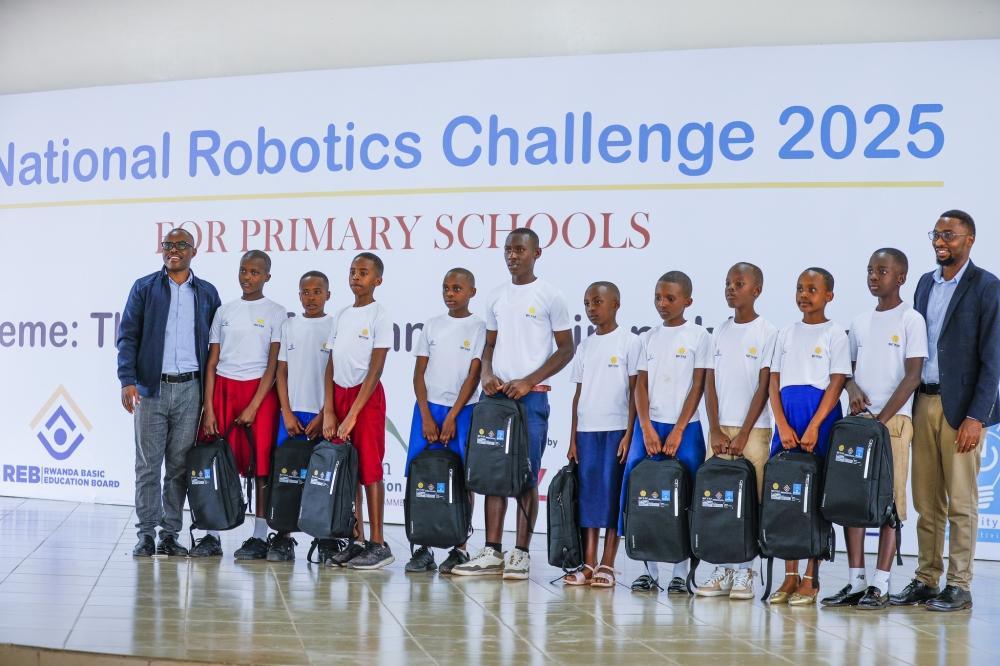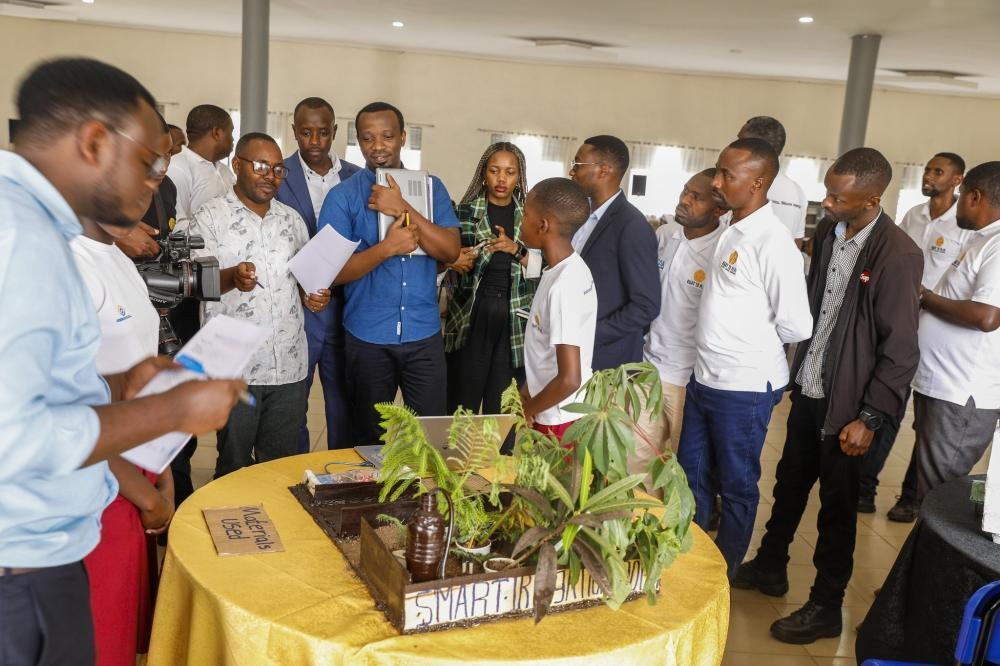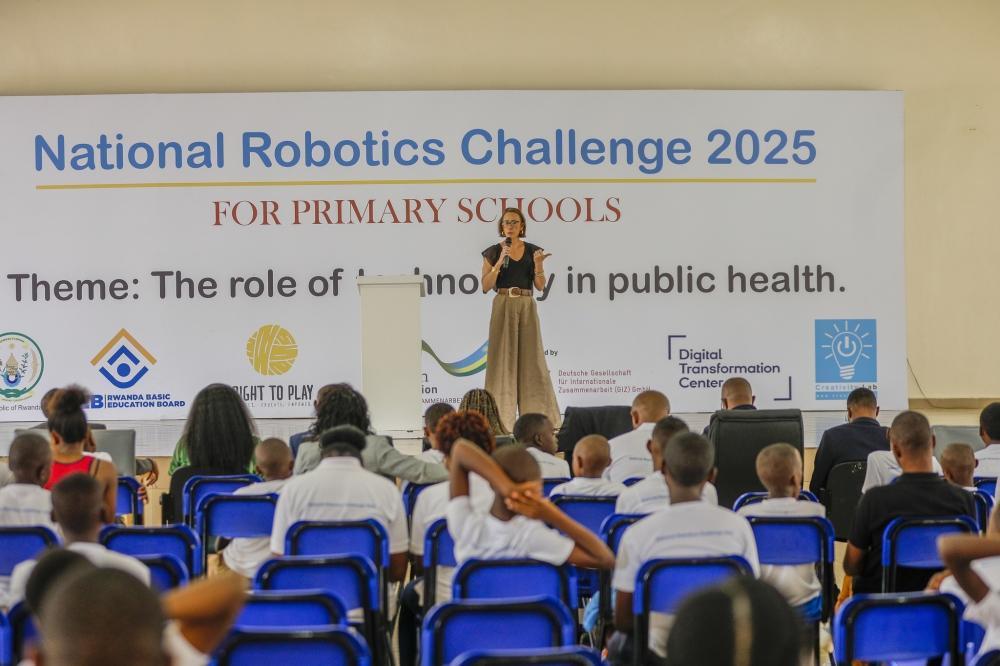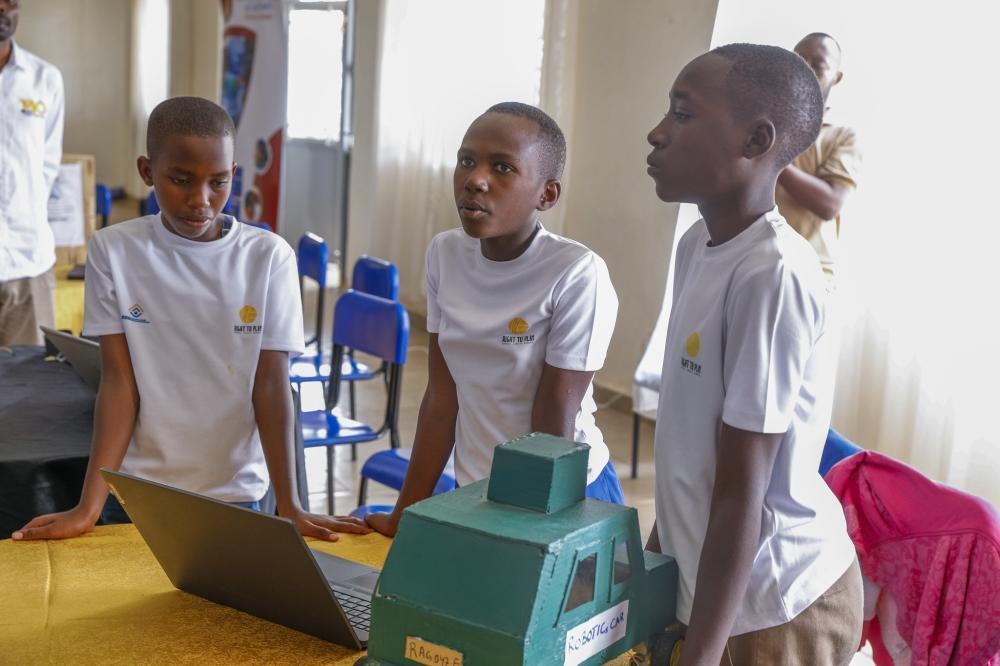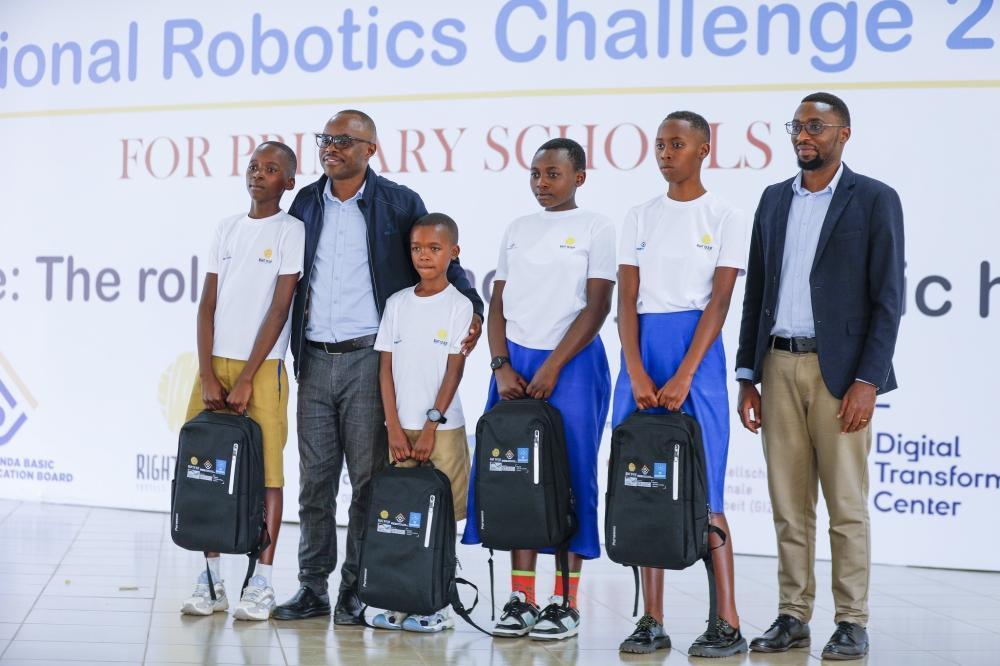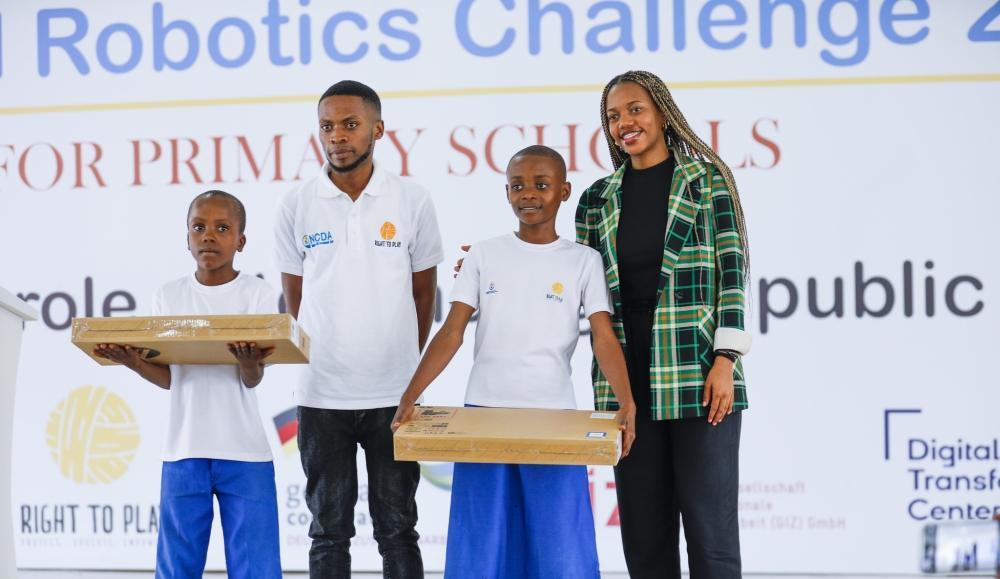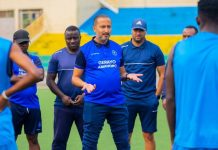Africa-Press – Rwanda. Right to Play Rwanda, in partnership with the Rwanda Basic Education Board, GIZ, and Creativity Lab, held the 2025 National Robotics Challenge on July 8, bringing together 60 primary school students aged 8 to 11 from across the country.
Under the theme “The Role of Technology in Public Health”, the young participants worked closely with their teachers to review classroom concepts and apply them by building and coding robots linked to the theme.
As part of the challenge, students also developed and presented an innovative project to a panel of judges.
Beyond technical skills, the competition helped them strengthen important soft skills like teamwork, communication, and problem-solving — tools that will support their creative journeys long after the event ends.
Rodgers Kabamba, the Program Manager at Right To Play Rwanda, explained that the robotics challenge is part of a larger initiative, called ‘Plug in Play’, which began in 2021. The original vision was to use play as a learning tool, but it evolved during the Covid-19 pandemic.
“We had to rethink how children could still play and learn through technology, and that is when the team saw a chance to connect the initiative with the Science and Elementary Technology (SET) lessons taught from primary 4 to 6, and saw a clear gap in programming and applied technology,” he said.
Rodgers Kabamba, the Program Manager at Right To Play Rwanda
Kabamba added that the project helped improve not just the creativity but also the quality of how students understand and perform in SET, noting the importance of growing the programme to reach more schools and students across Rwanda.
“We want these students, especially those with real talent, to be seen. That’s why we invite different stakeholders to these events, to spot potential and hopefully support these kids even when they move on to secondary school. Just because the project ends doesn’t mean their creativity should stop,” he added.
According to Vedaste Aime Uwishema, Director of Emerging Technology for Education at the Rwanda Basic Education Board (REB), the robotics challenge reflects the kind of innovation Rwanda’s education system is aiming to nurture.
“When you look at these students, it’s clear they have great ideas in technology, they were presented with a problem and came up with a variety of creative solutions — that’s exactly the kind of thinking we want to encourage in schools,” he said.
Uwishema emphasised that technology is becoming a more central part of education, and the curriculum is being updated to reflect that shift.
“We’re doing everything we can to support students, not just during events like these, but also when they go back to the classroom, and this kind of challenge gives them a space to explore and apply what they’ve learned — and it pushes them to be more innovative.”
One of the students who won this year’s Robotics Challenge, Diane Umuhoza, 11, from GS Kamongo in Musanze District, said the journey started long before the competition.
“I’m really happy we won, we began learning with computers back in primary 4, but I didn’t have the materials at home, even though I loved the subject, but the project provided tools we didn’t have before, and we were able to make the smart stick,” she said.
Her team designed a smart stick for visually impaired people — a walking stick fitted with sensors and sound alerts.
“If there’s an obstacle in front, the stick makes a sound to warn them; that way, a blind person can move around safely without needing help from someone else,” she explained.
Alleluia Hirwa, 13, from GS Ramba in Rubavu District, was part of the team that designed a smart hand-washing station — a project aimed at promoting better hygiene and preventing the spread of disease. He said the project was designed for real-life use, especially for kids.
“We built a smart hand wash system to help people stay clean and avoid sickness caused by poor hygiene. It helps you wash your hands after playing outside, after using the bathroom, or before eating. It even has a switch to make it easy to use,” he said.
For Hirwa, the win means a lot, but looking ahead, he hopes to improve the design even further.
“I’m really happy we won. My parents are going to be proud, but we want more support so we can add a hand dryer and even a solar panel to power the whole system, which would make it even more useful and sustainable,” he added.
Right to Play Rwanda, in partnership with the Rwanda Basic Education Board, GIZ, and Creativity Lab, held the 2025 National Robotics Challenge on July 8. All photos by Craish Bahizi
The young participants worked closely with their teachers to review classroom concepts and apply them by building and coding robots linked to the theme.
The event was held under the theme “The Role of Technology in Public Health”.






For More News And Analysis About Rwanda Follow Africa-Press

